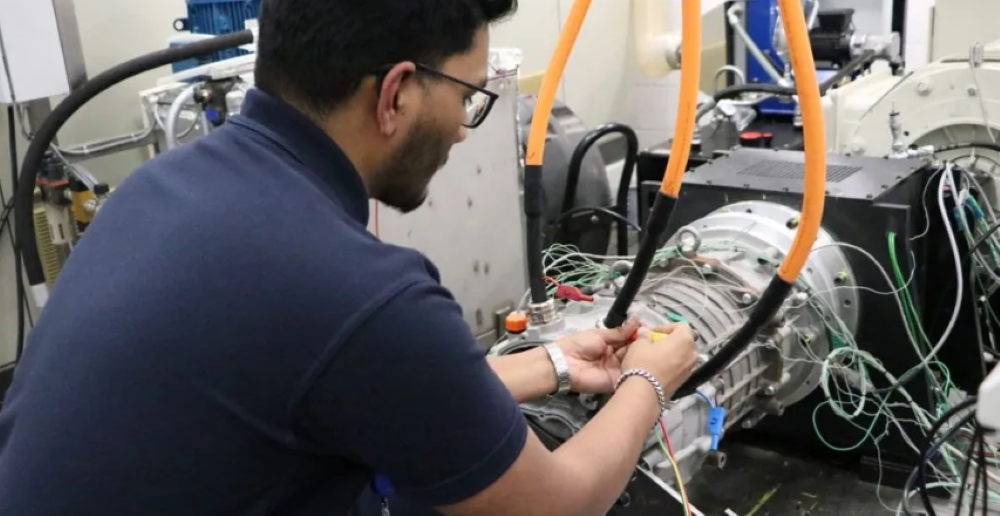

A UK consortium has unveiled a prototype rare-earth-free synchronous reluctance motor featuring aluminium hairpin windings in place of traditional copper. Named the Alumotor, this innovative design offers a durable, cost-effective, and sustainable alternative to conventional permanent magnet motors, with the potential to reduce manufacturing costs by up to 60 per cent.

Aluminium hairpin windings are emerging as a viable alternative to traditional copper windings in electric motors, especially within the automotive sector. They provide several benefits, including reduced weight, lower material costs, and potentially better heat dissipation.
The project is spearheaded by environmental and engineering consultancy Ricardo, in collaboration with Aspire Engineering, Brandauer, Warwick Manufacturing Group, Phoenix Scientific Industries, and Global Technologies Racing. It has received funding support from Innovate UK, the UK government’s innovation agency.
“We are excited to be at the forefront of testing aluminium-hairpin windings, and are achieving strong performance data that will support future go-to-market activities. This is a significant development, showing true innovation, and supports our reputation as experts in the design and development of future sustainable technologies,” said Dr Dragica Kostic-Perovic, Ricardo chief engineer responsible for the Alumotor project.
The oil-cooled, 214kW motor delivers peak efficiency exceeding 92 per cent and is engineered primarily for light commercial and off-highway vehicles, though its scalable design makes it adaptable for a range of other applications.
Operating at 400V, the motor tackles the environmental challenges associated with electric motor materials. In addition to eliminating up to 12kg of rare-earth magnets, it is also free from other critical raw materials like cobalt.



Responses






